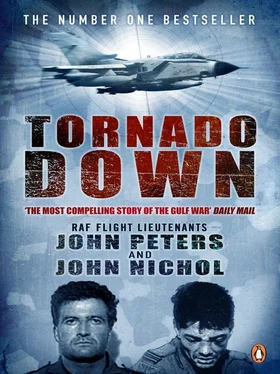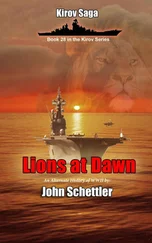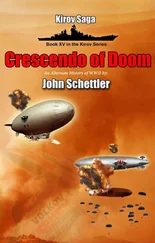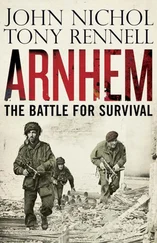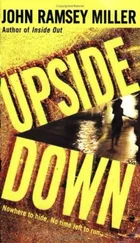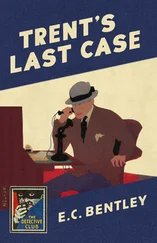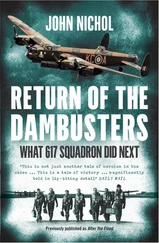John Peters: It was the first time John Nichol had ever used his sunglasses in anger. Without them, the sunlight glaring up off the desert floor could be dazzling once you got airborne. We were starting the serious stuff now. For our first, familiarisation sortie, our four-aircraft formation was led out into the southern Saudi desert by Squadron Leader Steve Randies, from 31 Tornado Squadron, who had been out in the Gulf for some time. He covered air routing in and out of the Muharraq airbase, explained the mysteries of the new ‘Havequick’ frequency-agile radios we would be using – which took some doing, they were so tricky to operate – talked us through Identification Friend or Foe (IFF), or ‘Squawk’ procedures, and told us how to contact AW ACS, the airborne early-warning aircraft.
Randies also briefed us on the hazards of desert flying. He made sure we took on board the ways in which the sun can deceive and disorientate, and gave us tips on how to fly low, safely, in a flat and featureless environment. He told us to take it carefully at first, not try to get too low too soon. This last was advice we were happy to follow: it really was tricky gauging height under certain combinations of terrain and light. So we kept it careful, to begin with, nothing too gung-ho. But as the days went past, and we got used to the conditions, we began winding the aircraft gradually downwards towards the deck, foot by foot, inch by inch, until we were all hammering along just above the sand, right down at forty feet.
Aside from the danger of flying into the ground, one of the biggest risks was on the ground: simply taxying the Tornado out of the holding pan and onto the runway. There were so many piles of supplies stacked up you had to be very careful not to drive into one. To remedy this shortage of space, the Royal Engineers and their Saudi colleagues were, as somebody put it, ‘laying hard standing and asphalt almost as quickly as you can walk across it’.
* * *
John Nichol: Bahrain is a party island, and this seemed especially true that Christmas before the war. It was just about the only place in the Gulf where you could legally consume alcohol, so people came from all over to slake their desert thirst in the many big hotels and bars. Gulf Air, the big British-run airline, had its air-hostess training school in town, so about 300 young and attractive British women were there, which was just something we were going to have to put up with. The bankers were mostly Brits; there was a Bahrain Rugby Football Club, a Yacht Club, and so on. In short, the island was home to a massive expatriate community, which immediately folded us to its collective bosom. They were fantastic to us. We made friends with everyone from the twenty-five-year-old bankers and their wives, to the older members of the community, including some who had retired to Bahrain for the relaxed way of living and the fine weather. These people treated every member of the Squadron like a long-lost son. The second night we were there, the lead XV Squadron formation could not attend a cocktail party at the British Club, so ours went along instead. The club was packed out. From that moment onward, our social engagements blossomed.
Traditionally, many of the expatriate British gathered at the house of a Bahraini businessman, Sharouk-al-Sharif, for the annual Christmas bash. We were invited to attend, so we put on a little revue for them. The main feature was four of us dressed up in bikinis, doing our synchronised swimming act. Not a pretty sight. Comic sketches and songs followed this aquatic appetiser. We were a bit worried, having seen the size and splendour of the location, the wealth and the glamour of the guests, that they might be expecting a professional cabaret act. They weren’t going to get one! But in the event, it all went swimmingly… We made many good friends at this party.
We were a little startled to spot most of the top RAF brass in Bahrain in the throng, including our own Squadron Boss, Wing Commander John Broad-bent, and the new senior officer taking over as Bahrain Detachment Commander, Group Captain David Henderson. If you are going to make a fool of yourself, it is important to do so in front of the right people…
That evening, we had inoculations against biological warfare weapons.
John Peters: Operational practices were evolving very quickly, with almost every sortie we flew. We were learning to adapt NATO standard flying practices to the new threat environment – not to mention to the new physical one, the infernal oven, the limitless desert. The main difference was in the sheer scale of the operations we were involved in, a scale impossible to simulate in peacetime. It made Red Flag look like a Sunday-school picnic.
Everybody was travelling along a very steep learning curve. We did a number of joint operations with the US forces, which went well, but a lot of what we did was autonomous, in formation, concentrating on silent procedures, the four Tornados prowling the desert.
We got into a routine: breakfast at the hotel; drive to the airfield, always in civilian clothes so as not to alarm the civilians with our military presence; change at the airfield; then see the ‘Squinto’ – Squadron Intelligence Officer – for the latest update. We were invariably told, ‘No Iraqi attack is expected within the next twenty-four to forty-eight hours.’ That day’s trip would have already been planned out, most of the details on a tasking sheet, which we checked over as a formation. Next would come the mission brief for the day, followed by individual task checking. Then we went flying. Debrief on return, any lessons learned, mistakes made? Are we having fun yet? Lunch. We would study in the afternoon for a few hours – flying procedures, weapons parameters, enemy aircraft capabilities, and so on – then go back to the hotel for a swim. But we had to stop swimming at Christmas. After Christmas, the Middle East had one of its worst winters on record – very cold, very windy and very rainy.
While it was still sunny enough to lounge about by the pool, and ease the old muscles a bit after flying, John, true to form, found himself a girlfriend. She wasn’t much to write home about: only intelligent, blonde, slim, tanned, pretty and fun to be with. The XV Squadron Warrant Officer, Pip Curzon, introduced the two of them. Curzon was a star personality on the Squadron, a father-figure not only to the younger airmen, but also to many of the junior officers theoretically outranking him. All three of them, she, John and Pip, were from the Newcastle area. Bloody Geordie mafia! As usual when he came within a five-mile radius of a desirable woman, John went into auto-witticism mode. They were very soon laughing together, and horsing about in the water. She was an air-hostess and wore a uniform into the bargain, when not in her bikini. I had a strange premonition that sharing a room with John was about to become a problem. Maybe that was why there was all this talk of issuing us with sleeping pills!
There were other excitements. We did some extremely stupendous flying – again, the kind of stuff you join for. Some of the most exhilarating sorties we flew were the practice attacks we made against the US Navy. Along with mines, the sea-skimming missile was the threat that Coalition Navies feared most, and with good reason: the USS Stark , a frigate on patrol in the Gulf, had been badly damaged by an Iraqi Exocet in 1987. The Iraqis said it was a mistake, but the loss of life and the injuries had been devastating.And everybody remembered the British experience of Exocet in the Falklands War. So the US Navy was keen for any chance it could get to exercise its defensive muscles against the Iraqi Mirage Fl/Exocet combination.
Читать дальше
